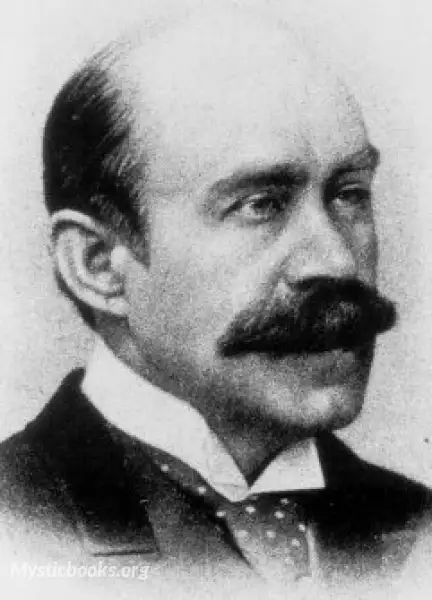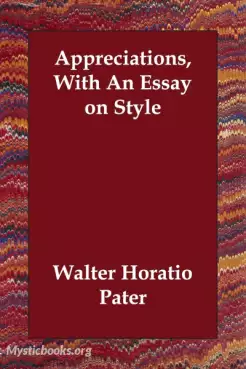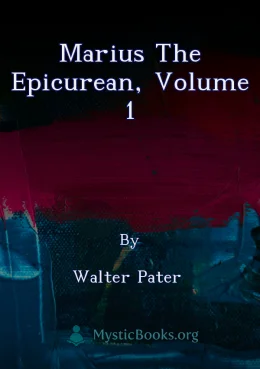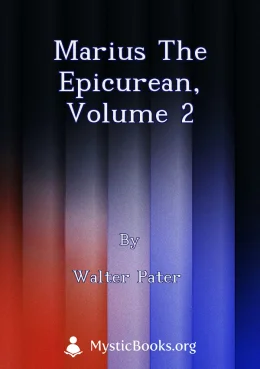
Timeline
Title
Country/Nationality
Walter Pater
Walter Horatio Pater was an English essayist, art and literary critic, and fiction writer, regarded as one of the great stylists. His first and most often reprinted book, Studies in the History of the Renaissance (1873), revised as The Renaissance: Studies in Art and Poetry, in which he outlined his approach to art and advocated an ideal of the intense inner life, was taken by many as a manifesto (whether stimulating or subversive) of Aestheticism.
Born in Stepney in London's East End, Walter Pater was the second son of Richard Glode Pater, a physician who had moved to London in the early 19th century to practice medicine among the poor. Dr Pater died while Walter was an infant and the family moved to Enfield. Walter attended Enfield Grammar School and was individually tutored by the headmaster.
In 1853, he was sent to The King's School, Canterbury, where the beauty of the cathedral made an impression that would remain with him all his life. He was fourteen when his mother, Maria Pater, died in 1854. As a schoolboy Pater read John Ruskin's Modern Painters, which helped inspire his lifelong attraction to the study of art and gave him a taste for well-crafted prose. He gained a school exhibition, with which he proceeded in 1858 to Queen's College, Oxford.
As an undergraduate, Pater was a "reading man", with literary and philosophical interests beyond the prescribed texts. Flaubert, Gautier, Baudelaire and Swinburne were among his early favourites. Visiting his aunt and sisters in Germany during the vacations, he learned German and began to read Hegel and the German philosophers. The scholar Benjamin Jowett was struck by his potential and offered to give him private lessons. In Jowett's classes, however, Pater was a disappointment; he took a Second in Literae Humaniores in 1862. As a boy Pater had cherished the idea of entering the Anglican clergy, but at Oxford his faith in Christianity had been shaken. In spite of his inclination towards the ritual and aesthetic elements of the church, he had little interest in Christian doctrine and did not pursue ordination. After graduating, Pater remained in Oxford and taught Classics and Philosophy to private students. (His sister Clara Pater, a pioneer of women's education, taught ancient Greek and Latin at Somerville College, of which Pater was one of the co-founders.) His years of study and reading now paid dividends: he was offered a classical fellowship in 1864 at Brasenose on the strength of his ability to teach modern German philosophy, and he settled down to a university career.
The opportunities for wider study and teaching at Oxford, combined with formative visits to the Continent – in 1865 he visited Florence, Pisa and Ravenna – meant that Pater's preoccupations now multiplied. He became acutely interested in art and literature, and started to write articles and criticism. First to be printed was an essay on the metaphysics of Coleridge, "Coleridge's Writings", contributed anonymously in 1866 to the Westminster Review. A few months later his essay on Winckelmann (1867), an early expression of his intellectual and artistic idealism, appeared in the same review, followed by "The Poems of William Morris" (1868), expressing his admiration for romanticism. In the following years the Fortnightly Review printed his essays on Leonardo da Vinci (1869), Sandro Botticelli (1870), and Michelangelo (1871). The last three, with other similar pieces, were collected in his Studies in the History of the Renaissance (1873), renamed in the second and later editions The Renaissance: Studies in Art and Poetry.
The Leonardo essay contains Pater's celebrated reverie on the Mona Lisa ("probably still the most famous piece of writing about any picture in the world"); the Botticelli essay was the first in English on this painter, contributing to the revival of interest in this artist; while the Winckelmann essay explored a temperament with whom Pater felt a strong affinity. An essay on "The School of Giorgione" (Fortnightly Review, 1877), added to the third edition (1888), contains Pater's much-quoted maxim "All art constantly aspires towards the condition of music" (i.e. the arts seek to unify subject-matter and form, and music is the only art in which subject and form are seemingly one). The final paragraphs of the 1868 William Morris essay were reworked as the book's "Conclusion".
Books by Walter Pater

Appreciations, with an Essay on Style
Appreciations, with an Essay on Style, is a collection of Walter Pater's previously-published essays on literature. The collection was well received by public and critic since its first edition, in 1889. The volume includes an appraisal of the poems...

Marius the Epicurean, Volume 1
Marius the Epicurean is a philosophical novel written by Walter Pater, published in 1885. In it Pater displays, with fullness and elaboration, his ideal of the aesthetic life, his cult of beauty as opposed to bare asceticism, and his theory of the st...

Marius the Epicurean, Volume 2
Marius the Epicurean is a philosophical novel by Walter Pater, published in 1885. The novel is set in the Roman Empire during the reign of Marcus Aurelius and follows the life of Marius, a young Roman aristocrat who is searching for meaning and purpo...